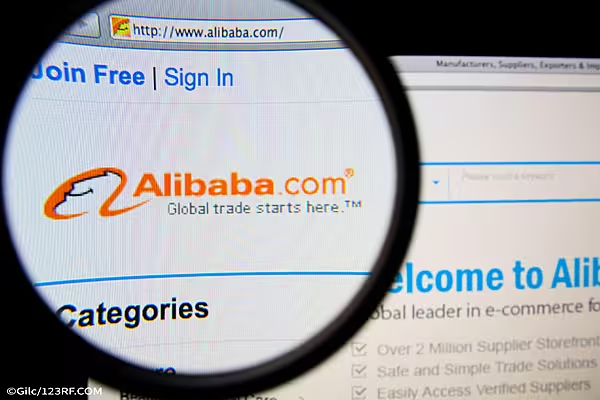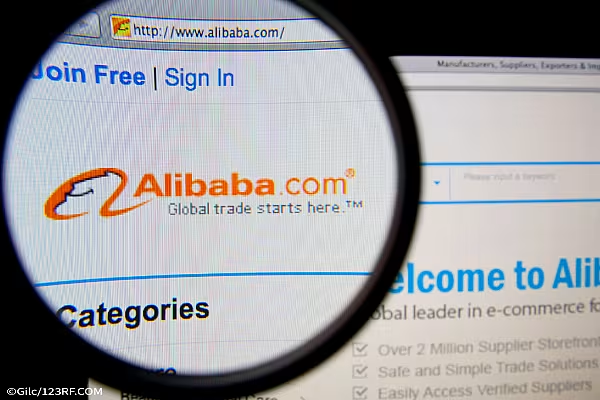In China, the sales maxim of 'know your customer' is being taken to new lengths.
One of the first firms to join an Alibaba Group Holding Ltd programme that provides years of consumer shopping history, snack food chain Bestore Co Ltd plans to link facial recognition technology with the e-commerce giant's account data by the year's end.
For customers opting to have their facial data in Bestore's systems, that means shop assistants will be able to check on what food they like the moment they enter one of its stores.
Face Scanning Tablets
Bestore, which already offers customers the option of paying with Alibaba's face scanning tablets, has also started using Alibaba's other services for more successful marketing.
It can now arrange for a person who likes salty food, owns an SUV and probably has a family to receive an ad suggesting suitable Bestore snacks for a Spring holiday road trip, Huang Xiao, Bestore's head of e-commerce, told Reuters.
"With the partnership, our strategies are more focused, sales behaviours are more targeted and resources are better allocated," Huang said.
The Alibaba programme, called A100 and which counts Nestlé SA and Procter & Gamble Co as clients, is part of a major push by e-commerce giants in China to retool their relationship with merchants - offering them a trove of shopper data in return for broader and closer partnerships.
'Boundary-Less Retail'
The shift is integral to what Chinese e-commerce firms call 'new retail' or 'boundary-less retail' - the marrying of data available from internet shopping and gathered through brick-and-mortar stores to provide highly personalised services.
It has been enabled by the widespread use of payments by smartphone, the rise of facial recognition technology and Chinese consumer tolerance of data-sharing between businesses.
Hangzhou-based Alibaba said data used for analysis by brands is anonymised and personal information on customers is not shared.
Other services Alibaba offers to retail clients include shopper movement 'heat maps' to help stores better design the layout of products, as well as its chat app Dingtalk to communicate within their own companies and with customers.
Seeking More Data
Keeping merchants happy and signing them up for more services has taken on added urgency for Alibaba and rival JD.com.
Both are seeking to diversify amid slowing e-commerce revenue growth at home - due in part to saturated markets in China's biggest cities, flagging consumer confidence from the US-China trade war and increased competition from rivals such as newly listed Pinduoduo Inc.
"For Alibaba and JD.com this is critical for their overall ecosystem because they have pretty much already exhausted the online growth," said Beijing-based Jason Ding, partner at consulting firm Bain & Company.
'Continuing To Grow'
By providing data-driven tools to retail stores, e-commerce firms can expand the amount of data collected. "It's not just about money, it's about continuing to grow, and hopefully they will find a way to monetise that," he said.
JD.com, which provides similar services to Alibaba, says it helped US diaper brand, Huggies, work out why Chinese competitors were rising in popularity, prompting Huggies to change to a material that is more absorbent and comfortable when wet.
That contributed to a 60% percent rise in Huggies sales on JD.com in 2018, the Chinese firm said.
A spokesman for Kimberly Clark, which owns the Huggies brand, declined to comment on the details of its partnership with JD.com.
Profiling Potential Buyers
After a trial run of a new product, JD.com said it creates a 'profile' of a potential buyer based on early sales that is cross-checked with its entire user base, before targeted ads are sent to close matches.
Other tools JD.com offers to retail clients include an customer service chatbot powered by artificial intelligence that can the "sense" the mood of customers, and adjust its tone to appear more empathetic.
It has also rolled out checkouts in some Hong Kong convenience stores that can scan several items at once and charge customers using their ID-linked accounts, which it says cuts the average checkout time by 30%.
Free For Now
Both JD.com and Alibaba executives say they are not charging companies for most data services at the moment, noting the new partnerships facilitate sales of other services such as cloud computing and logistics.
Nestlé, which sells Haagen Daaz and Nespresso through third-party retail locations in China, says it now has one warehouse instead of four after tapping into data at Alibaba distribution centres which give real-time updates on orders.
"You don't have to carry huge inventory in your warehouse," said Rashid Qureshi, chief executive of Nestlé's Greater China business, adding it's the first time Nestlé has integrated an e-commerce firm's data into its own systems.
Where previously Bestore and Nestlé would have dealt with different parts of the Alibaba empire for delivery, payments, cloud computing and messaging, they now work with one Alibaba team dedicated to their company which organises a range of tailored services.
"It's a change that subverts the way our entire company has operated," Alibaba's Jet Jing told Reuters in an interview. Jing, formerly president of Alibaba's retail site Tmall, has since become assistant to CEO Daniel Zhang.
A100 Programme
Alibaba has not disclosed how many companies are currently participating in its A100 programme, but some analysts say for now only big firms will be able to benefit as smaller firms do not have the funds to justify major organisational changes.
One risk for retailers, however, is that they may become overly dependent on their e-commerce partners.
The Chinese market remains tough for brands to crack independently and Alibaba and JD.com represent the two biggest online retail channels into the country.
In the face of such tough competition, Amazon.com Inc said in April it is shutting its China online store.
'A Must For Brands'
"It's a must for the brands to be involved," says Bain & Company's Ding. "But everyone would like to have a balance and not put their eggs in one basket."
More broadly, questions remain over how big e-commerce firms manage their data in a way that is fair to all parties using their services.
EU regulators in September launched a preliminary antitrust investigation into Amazon over concerns it is collecting similar data from brands that it might use to boost competing products of its own.
Alibaba and JD.com do not produce their own products but both have made significant investments in retail stores including experimental grocery and convenience store formats.
News by Reuters, edited by ESM. Click subscribe to sign up to ESM: European Supermarket Magazine.













